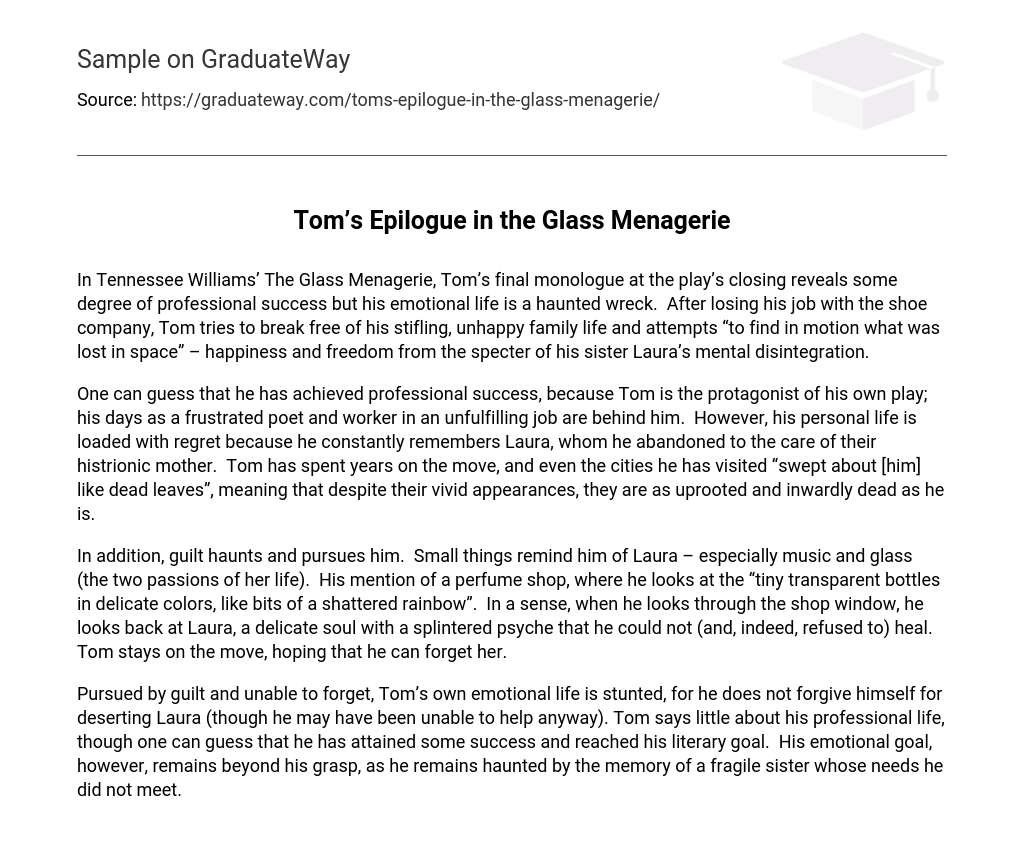In Tennessee Williams’ The Glass Menagerie, Tom’s final monologue at the play’s closing reveals some degree of professional success but his emotional life is a haunted wreck. After losing his job with the shoe company, Tom tries to break free of his stifling, unhappy family life and attempts “to find in motion what was lost in space” – happiness and freedom from the specter of his sister Laura’s mental disintegration.
One can guess that he has achieved professional success, because Tom is the protagonist of his own play; his days as a frustrated poet and worker in an unfulfilling job are behind him. However, his personal life is loaded with regret because he constantly remembers Laura, whom he abandoned to the care of their histrionic mother. Tom has spent years on the move, and even the cities he has visited “swept about [him] like dead leaves”, meaning that despite their vivid appearances, they are as uprooted and inwardly dead as he is.
In addition, guilt haunts and pursues him. Small things remind him of Laura – especially music and glass (the two passions of her life). His mention of a perfume shop, where he looks at the “tiny transparent bottles in delicate colors, like bits of a shattered rainbow”. In a sense, when he looks through the shop window, he looks back at Laura, a delicate soul with a splintered psyche that he could not (and, indeed, refused to) heal. Tom stays on the move, hoping that he can forget her.
Pursued by guilt and unable to forget, Tom’s own emotional life is stunted, for he does not forgive himself for deserting Laura (though he may have been unable to help anyway). Tom says little about his professional life, though one can guess that he has attained some success and reached his literary goal. His emotional goal, however, remains beyond his grasp, as he remains haunted by the memory of a fragile sister whose needs he did not meet.





